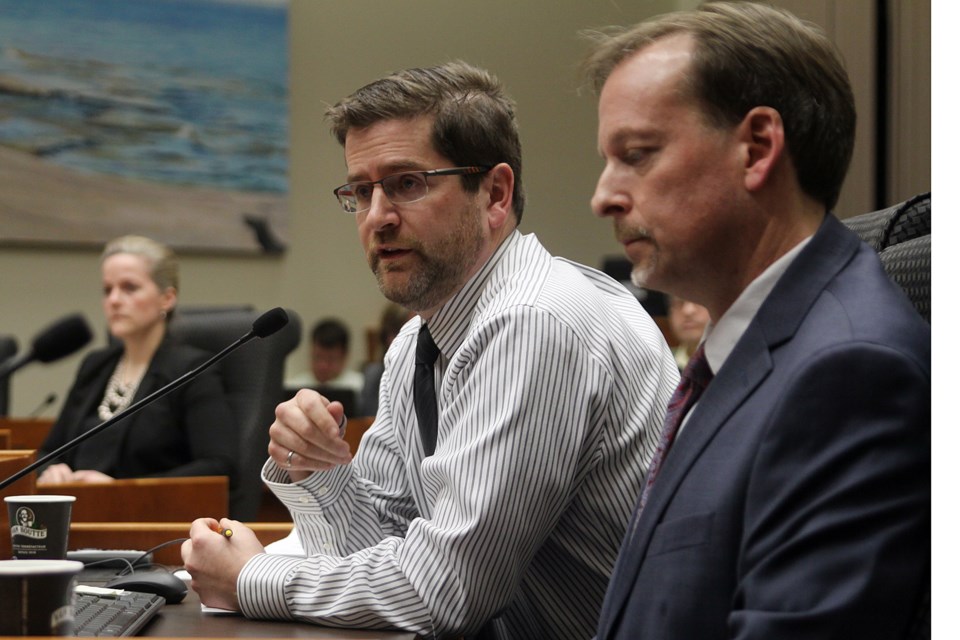THUNDER BAY – Stormwater management spending in the city’s proposed 2018 budget is $4 million less than recommended in its long-term plan.
The total combined amount from all sources in the draft spending plan is nearly $9 million, far below the $13 million recommended for this year in the 2016 stormwater management master plan.
The city has retained AECOM consulting firm to conduct a financing study, which will provide recommendations on funding sources for stormwater management, with Thunder Bay city council on Monday night receiving a presentation on what that analysis will cover.
Thunder Bay’s stormwater expenditures have fluctuated significantly over the past three years, with a high of $12 million last year largely as a result of significant senior levels of government funding down to a low of $7.3 million in 2016. The city’s tax-funded share has steadily declined from nearly $5.7 million in 2015 down to $4 million in this year’s draft budget.
The city’s asset management plan has calculated an annual capital funding deficit of $3.3 million just to maintain existing stormwater infrastructure.
“The longer that funding gap is not addressed the more likely that funding gap will be passed on to the next generation,” consultant Michael Gregory told council.
City project engineer Aaron Ward said the stormwater management plan identified the need for 550 new treatment facilities to store the groundwater and help reduce flooding as well as clean the water. Each range in cost from $20,000 to over $1 million.
“The majority of our storm sewer systems do drain into lakes, rivers and streams. That’s how the majority of it works. There’s only a small minority left that is connected to the sanitary sewer system,” Ward said.
“One of the things the stormwater plan is looking to do though, is our storm sewer system is currently about 95 per cent of that more or more drains into rivers untreated. Whatever falls on the ground goes into rivers as is untreated. We have been making strides in putting in some new stormwater treatment facilities to clean the water, store the water and address flooding.”
One option that will be explored is the implementation of a stormwater user fee, also unofficially referred to as a rain tax, which could set runoff contribution rates for properties based on hard surfaces such as rooftops, driveways, parking areas, patios and sidewalks.
The presentation to council noted other Ontario municipalities including London, Kitchener, Waterloo, Markham and Mississauga all have forms of a fee with a typical range of between $4 and $15 for the average homeowner. Other cities across the country such as Calgary, Edmonton, Regina, Halifax and Victoria also have stormwater charges.
“The view in the public is this is potentially a money grab,” Coun. Andrew Foulds said. “How can we in these early days justify this investment? What does it mean to citizens at a personal level? How will they benefit from doing something more about stormwater management?”
Gregory responded municipalities – and thus residents – are currently hit with the cost of stormwater.
“Typically, the majority of stormwater management is funded by property tax,” Gregory said. “It’s already being taxed. The rain is already being taxed indirectly.”
According to the presentation, it would take a five per cent tax increase to pay the entire $13 million identified as the annual requirement out of property taxes alone.
The update on the financing study is expected to be presented to council later in the year following the municipal election.
